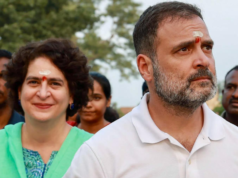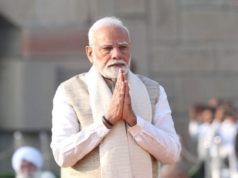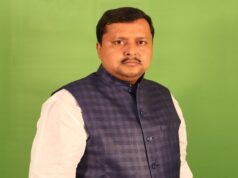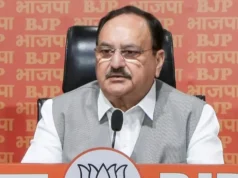Following his admission to AIIMS Delhi, former Prime Minister Dr. Manmohan Singh passed away on Thursday, December 26.
Manmohan Singh Death: On Thursday night, former Prime Minister Dr. Manmohan Singh was hospitalized to AIIMS in Delhi following a decline in his health. The Congress’ Delhi chapter confirmed Singh’s passing on social media platform X, calling him an irreversible loss to Indian politics.
“Indian politics has suffered an irreversible loss with the passing of esteemed Manmohan Singh ji, the nation’s former prime minister and well-known economist. May God provide the deceased’s soul serenity and his family the fortitude to endure this loss. The Delhi Congress family honors the memory of revered Manmohan ji and thanks him for his role in the development of the country. The grand old party wrote, “Om Shanti.”
The All India Institute of Medical Sciences (AIIMS), Delhi, announced the former prime minister’s passing after he was brought in the emergency room at 7:30 p.m. in a serious condition. “He (Singh) was treated for age related medical conditions and had sudden loss of consciousness at home” on December 26, according to an AIIMS bulletin.
“At home, resuscitation efforts were initiated right away. At 8:06 p.m., he was taken to AIIMS Delhi’s medical emergency room. At 9:51 p.m., he was pronounced dead after all attempts to revive him failed, according to the post.
Singh, who led the Congress-led UPA administration for two years from 2004 to 2014, has been ill for the past several months and has been called a reluctant politician and an accidental prime minister. His three daughters and wife, history professor Gursharan Kaur, survive him.
As soon as word spread that he was being admitted to the hospital, Congress politician Priyanka Gandhi Vadra and her mother, Sonia Gandhi, arrived at the facility.
Manmohan Singh’s Career in Politics
As the finance minister under then-prime minister P V Narasimha Rao, Singh was a well-known economist. He was the mastermind behind the 1991 economic reforms that saved India from bankruptcy and brought about an era of economic liberalization that is generally accepted to have altered the country’s economic trajectory.
Singh’s appointment as finance minister marked a watershed in the history of independent India’s economy, which saw audacious economic reforms, the end of the license raj, and the opening of numerous industries to foreign and private investors to allow for the inflow of capital.
A former governor of the RBI, he is recognized for having permitted devaluation of the rupee, FDI, tax reduction, and the privatization of public sector enterprises. All of the top party officials were present at the Congress Working Committee (CWC) meeting in Belagavi, Karnataka, when Singh passed away.
The historic Indo-US nuclear deal signed in 2008, during Singh’s first term, raised India’s standing internationally. Singh remained steadfast on the nuclear agreement, which will always be his prime ministerial high point. After the Samajwadi Party (SP) backed the prime minister, the Left Front withdrew its support for his administration due to the agreement.







